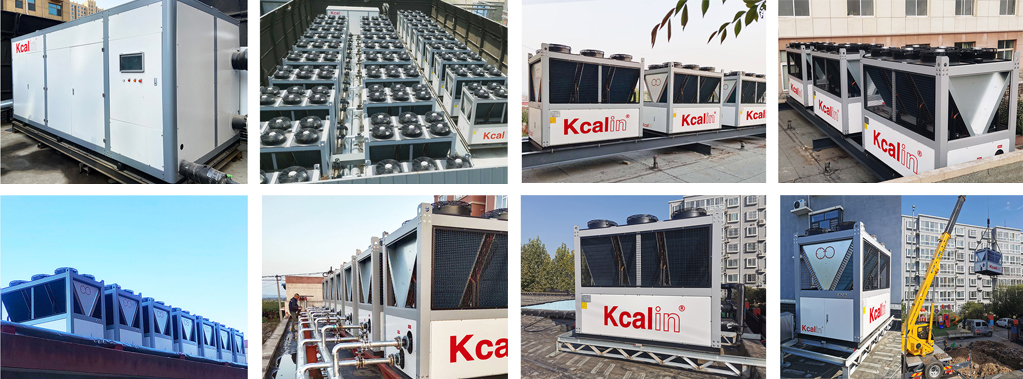In today's era of pursuing sustainable development and energy efficiency, the demand for environmental and energy-saving solutions in the business sector is increasing. Among them, air source heat pump technology is gradually becoming an energy miracle in commercial spaces. Its outstanding performance not only meets commercial needs, but also effectively reduces energy costs and carbon emissions, creating a more sustainable future for enterprises.
Efficient and energy-saving, reducing energy costs
Air source heat pump technology utilizes the heat energy in nature to convert the heat in the air into energy sources such as heating, cooling, and hot water required for commercial spaces. Compared to traditional electric heaters or gas boilers, air source heat pump technology can provide the same energy efficiency with lower energy consumption. By effectively utilizing the thermal energy in the environment, commercial spaces can significantly reduce energy costs and create significant energy-saving benefits for enterprises.
Stable operation throughout the season, adapting to diverse needs
Whether it's cold winter or hot summer, air source heat pump technology can operate stably throughout the season, ensuring comfortable and pleasant temperatures in commercial spaces. It can automatically adjust its working mode according to different seasonal needs, achieve flexible conversion of heating and cooling, and meet the diverse energy needs of commercial spaces. Whether it's office buildings, shopping malls, hotels, or medical institutions, air source heat pump technology can provide reliable and efficient energy solutions for the commercial sector.
Environmental protection and emission reduction, achieving sustainable development

With increasing attention to environmental issues, enterprises have become an important responsibility and image shaping factor for environmental protection and emission reduction. Air source heat pump technology is an ideal choice because it uses clean energy, does not require fuel combustion, and does not produce harmful gases and pollutants. Compared to traditional gas boilers or electric heaters, air source heat pump technology can reduce carbon emissions during heating and cooling processes, making a positive contribution to the sustainable development of commercial spaces.
Flexible installation, saving space costs
The flexibility of air source heat pump technology makes its installation process easier and faster. Compared to traditional heating and cooling systems, air source heat pumps do not require tedious pipeline laying and installation of large equipment, and can be arranged in limited space. This not only saves the decoration cost of commercial space, but also provides more available area for enterprises to maximize the utilization of space resources.
Intelligent control enhances comfort and convenience
Modern air source heat pump technology is equipped with an intelligent control system that can automatically adjust parameters such as temperature and humidity in commercial spaces, achieving precise energy management. Employees and customers in commercial space can enjoy a stable and comfortable indoor environment without frequent adjustment of temperature and humidity. At the same time, through devices such as smartphones, users can also remotely monitor and control the air source heat pump anytime and anywhere, improving the convenience and flexibility of use.
Long term reliability, saving maintenance costs
After long-term development and improvement, the air source heat pump technology has achieved reliability and durability. Its components have undergone strict quality inspection and testing, and can operate stably in harsh environments for many years. Compared with traditional heating and cooling systems, air source heat pumps have lower maintenance costs, reduce maintenance and replacement costs for enterprises, and save a lot of financial expenses for the operation of commercial spaces.
As an energy miracle in commercial spaces, air source heat pump technology has become a green energy choice in the commercial field due to its many advantages such as efficient energy conservation, stable operation throughout the season, environmental protection and emission reduction, flexible installation, intelligent control, and long-term reliability. It can not only reduce energy costs for enterprises and achieve sustainable development, but also enhance the comfort and convenience of commercial spaces, creating a better work and living environment for enterprises.







Comment